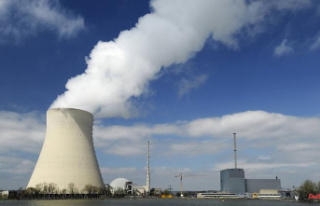The high inflation in Turkey continues to rise, groceries are more than 90 percent more expensive compared to the previous year. Erdogan's interest rate policy and Russia's war of aggression are to blame for the average rate of over 80 percent.
Consumer prices in Turkey rose the fastest in 24 years in August. Goods and services rose by an average of 80.21 percent compared to the same month last year, according to the statistics office.
Economists surveyed by the Reuters news agency had even expected an inflation rate of 81.2 percent, after having been 79.6 percent in August. From July to August alone, the cost of living increased by 1.46 percent. According to central bank forecasts, inflation will not peak until autumn, with inflation rates approaching 90 percent.
According to surveys, many Turks do not believe the official statistics: They believe that prices are rising even more than officially reported. Transport costs - which include petrol, for example - increased by 117 percent in the past month. Food and non-alcoholic beverages rose in price by more than 90 percent. Consumers also had to dig deeper into their pockets for furniture and household appliances: they cost an average of 92 percent more than in August 2021.
The main reason for the currently sharply rising prices is the consequences of the Russian war against Ukraine, which has made many raw materials significantly more expensive. However, rising inflation is also closely linked to the weakening lira: the national currency lost 44 percent of its value against the US dollar last year and a further 27 percent so far this year. The reason for this is that the central bank has been gradually lowering its key interest rate from 19 percent to the current 14 percent since last autumn, although economic textbooks actually recommend interest rate hikes when prices are rising sharply.
Falling interest rates make a currency less attractive to investors. The weak lira, in turn, makes imports more expensive, on which Turkey, which has few natural resources, is dependent. President Recep Tayyip Erdogan wants to boost the economy with low interest rates. According to a government forecast, the inflation rate is expected to fall to 65 percent by the end of the year. By the end of 2023, it should then fall to almost 25 percent, according to a forecast published on Sunday.












